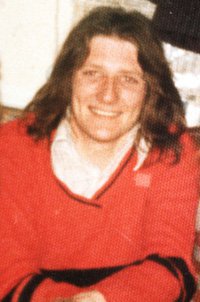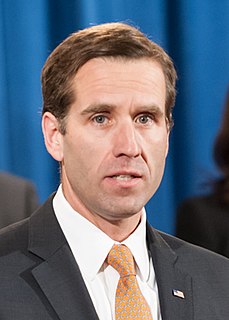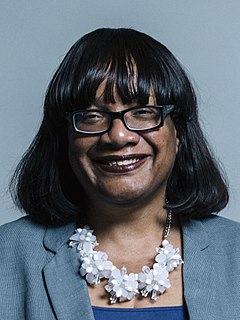A Quote by Nelson Mandela
The question of crime is one of concern to everybody. But the position is that the security forces in our country for the last four decades did not concentrate on suppressing crime. Their main objective was to suppress, to crush political activity. And in the process, crime grew to unacceptable proportions. And criminals were able to form powerful syndicates, and they virtually took over the control of the life of the community in certain areas.
Quote Topics
Able
Activity
Areas
Certain
Community
Concentrate
Concern
Control
Country
Crime
Criminals
Crush
Decades
Did
Everybody
Forces
Form
Four
Grew
Last
Life
Main
Objective
Our
Our Country
Over
Political
Position
Powerful
Process
Proportions
Question
Security
Security Forces
Suppress
Suppressing
Took
Unacceptable
Virtually
Were
Related Quotes
It may be true that encryption makes certain investigations of crime more difficult. It can close down certain investigative techniques or make it harder to get access to certain kinds of electronic evidence. But it also prevents crime by making our computers, our infrastructure, our medical records, our financial records, more robust against criminals. It prevents crime.
If it comes to a question of law, the charges they brought against me - the Espionage Act - is called the quintessential political crime. A political crime, in legal terms, is defined as any crime against a state, as opposed to against an individual. Assassination, for example, is not a political crime because you've killed a person, an individual, and they've been harmed; their family's been harmed. But the state itself, you can't be extradited for harming it.
Between 1995 and 2005, the prison population grew by 30 percent, meaning an additional half million criminals were behind bars, rather than lurking in dark alleys with switchblades. You can well imagine liberals' surprise when the crime rate went down as more criminals were put in prison. The New York Times was reduced to running querulous articles with headlines like Number in Prison Grows Despite Crime Reduction and As Crime Rate Drops, the Prison Rate Rises and the Debate Rages.
The best crime stories are always about the crime and its consequences - you know, 'Crime And Punishment' is the classic. Where you have the crime, and its consequences are the story, but considering the crime and the consequences makes you think about the society in which the crime takes place, if you see what I mean.
Once I got interested in organized crime, and, specifically, Jewish organized crime, I got very interested in it. I have learned that, like my narrator Hannah, I'm a crime writer in my own peculiar way. Crime with a capital "C" is the subject that I'm stuck with - even Sway is about "crime" in a certain way. The nice thing about crime is that it enables you to deal with some big questioO
Tonight, I propose a 21st Century Crime Bill to deploy the latest technologies and tactics to make our communities even safer. Our balanced budget will help put up to 50,000 more police on the street in the areas hardest hit by crime, and then to equip them with new tools from crime-mapping computers to digital mug shots. We must break the deadly cycle of drugs and crime.












































